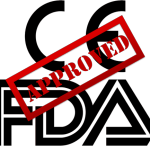The “regulatory affairs” section comprises over 200 tasks that need to be completed during the development and approval of medical devices.
Here, you will find an overview of the most essential content so that you can get your device approved quickly.
Content
On this page, you will find articles on the following topics:
- What regulatory affairs is
- Regulatory requirements
- Authorization and documentation
- Authorities, institutions, and associations
- Further topics of regulatory affairs
1. What regulatory affairs is
Regulatory affairs comprises the processes and activities that ensure that medical devices meet the regulatory requirements of the countries where they are sold. This includes
- obtaining the necessary approvals from the regulatory authorities,
- compliance with applicable regulations and standards, and
- maintaining conformity throughout the entire product life cycle until decommissioning.
The tasks of regulatory affairs also include monitoring changes to regulations and standards and communicating these changes to stakeholders within the company to ensure continuous compliance.
Regulatory affairs thus plays a crucial role in ensuring that medical devices are safe, effective, and comply with legal requirements.
Further information
Refer also to the article on regulatory affairs managers’ tasks, competencies, and earning potential. This includes the task of developing a regulatory strategy.
2. Regulatory requirements
a) Germany
| Laws |
Medical Devices Law (no longer valid)
Medical Devices Implementation Act MPDG |
| National regulations |
Medical Device Operator Ordinance (Medizinprodukte-Betreiberverordnung – MPBetreibV)
Medical Device User Notification and Information Ordinance (Medizinprodukte-Anwendermelde- und Informationsverordnung – MPAMIV) |
b) Europe
c) USA
d) Other markets
3. Approval and documentation
a) Approval
Find more information on international approval
b) Qualification and classification (How should my device be classified?)
c) Technical documentation (What do I need to document for each device?)
d) Quality management (What should your company fulfill?)
Quality management is not usually the responsibility of regulatory affairs. Nevertheless, we have listed some important articles for you.
e) Regulatory Roles
There are several expert articles on regulatory roles:
4. Authorities, institutions, and associations
a) Germany
b) Europe
c) International
| IMDRF: International Medical Device Regulators Forum |
5. Regulatory affairs: Further topics
The tasks of Regulatory Affairs also include finding and eliminating deviations and non-conformities. The (emergency) elimination is called remediation.
Note the advantages and disadvantages of Regulatory Information Management Systems (RIMS) and their role in manufacturers’ digital transformation.
Part of the tasks of regulatory affairs is regulatory intelligence.
Do you need support?
Do you still have questions, for example, about the approval of your devices? Then, take advantage of our free micro-consulting service.
If you would like support in developing and “approving” your medical devices in compliance with the law, contact us right away. The Johner Institute team will be happy to help!
The “design verification” requirement is not just a requirement of the FDA. This article describes what “design verification” means and which regulatory requirements medical device manufacturers should fulfill.
The EU’s in vitro diagnostic medical device regulation (IVDR) affects many medical laboratories, although the regulation does not define or use the term “medical laboratory.” Which laboratories are affected? What other laws do the laboratories have to comply with? And how should they ensure compliance with all these requirements? This article provides answers.
Details
The United Arab Emirates (UAE) with its hubs Dubai and Abu Dhabi is one of the most developed economies in the Middle East. The Emirates is among the wealthiest countries in the world. The healthcare system is considered highly developed, which is why the United Arab Emirates (UAE) is a popular health tourism destination in…
Details
With the term eCopy, the FDA refers to the electronic copy/version of paper-based submissions, e.g., as part of a 510(k) submission.
What is a Device Master Record (DMR)? Does software also need a DMR? If so, what are the regulatory requirements in the US and Europe? And what should a DMR contain? This article provides answers.
Details
A ‘Request for Information’ can (partially) avoid expensive legal fees. Just ask the authorities directly! This way, you will get a qualified answer, even if it is not free of charge. Read here to find out
Details
Some Medical Device Regulation (MDR) changes affect all medical device manufacturers. Some of these changes are particularly aimed at manufacturers whose products contain software or are standalone software. Read on to find out what these manufacturers should be aware of.
The requirements for clinical investigations to evaluate a device have increased enormously under the MDR. Learn the most important things you need to know about the regulatory pathway for clinical investigations under the MDR here.
Most medical device manufacturers associate the term “design validation” with the FDA. However, not only the FDA but also European regulations, particularly ISO 13485, require design and development validation. Nevertheless, design validation and validation of the design should not be confused. This article shows how the two differ and which regulatory requirements must be observed.
Details
The Medical Device Single Audit Program (MDSAP) was initiated to satisfy a wish of many medical device manufacturers: To replace the various audits and inspections by authorities from different countries with one audit. Participating in the MDSAP shall suffice for verifying effectiveness and conformity of QM systems (e.g., with ISO 13485 or 21 CFR part 820). In…
Details
